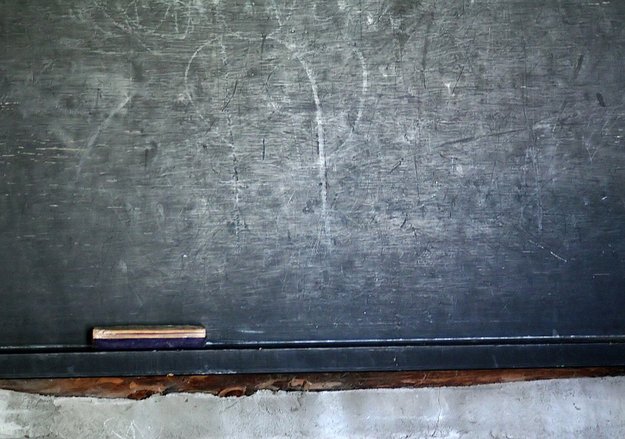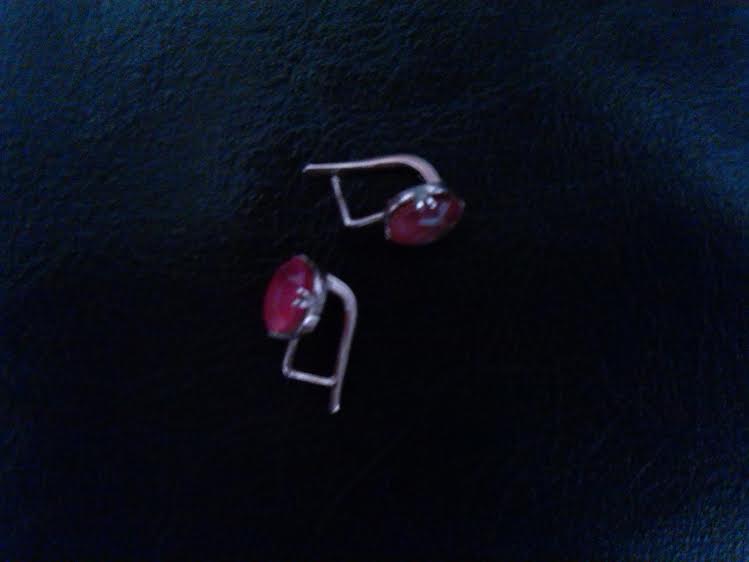 A writer always has a mother and a father, who very often have nothing to do with her biological manufacturers; neither does the mother have to be female or father male. A writer also has a husband/wife of whatever gender that sparks off her desire, often not the one who shares her daily bed and bread. The mother is the reason of why she writes at all. The father is the one who actually puts a pen into her hand and presses it onto the paper. The partner is aka, well, her muse.
A writer always has a mother and a father, who very often have nothing to do with her biological manufacturers; neither does the mother have to be female or father male. A writer also has a husband/wife of whatever gender that sparks off her desire, often not the one who shares her daily bed and bread. The mother is the reason of why she writes at all. The father is the one who actually puts a pen into her hand and presses it onto the paper. The partner is aka, well, her muse.
The first piece ever that a writer produces is usually about one of this trinity. If I am ever invited to contribute to this blog again, I will tell you about the latter two. But today, it is my mother-in-letters, Maria Ivanovna Moskvina. A little vignette in her honour that I would like to share here was written ten years ago to be performed at an international teachers’ conference. It was received very favorably, and I submitted it to a British literary magazine, where it was accepted at once, my very first publication, which gave me the courage to write on, on, and on.
My name is Svetlana. I learn English every day. I am learning English now. I have learnt some English already. I have been learning English for ten years. If I hadn’t been so lucky I would have never had a chance to learn English. Even the gorgeous Present Perfect Progressive have I mastered, and the mysteries of the nebulous Subjunctive Mood, too, as you can well hear, without ever having visited London, which is the capital of Great Britain and stands on the river Thames.
I live in a fuming Eastern-Ukrainian town with dandelions poking through concrete in some places. Grey people swarm into trolley-buses to get to factories in the morning. In the evening they storm groceries to get some sausage for supper.
I don’t mind an hour’s ride to school in a bursting trolley-bus because I am fortunate to go to the only school in the town where English is taught from the first class. Maria Ivanovna, the town’s premium teacher of English, reigns there. We are all in awe of her. She makes us meek and silky just with the glance of her bespectacled eyes. Maria Ivanovna takes a syringe and injects a dose of success right into our assiduous bottoms. She says, ‘Don’t you dare come to see me in ten years unless you are driving a black Mercedes, working in the Ministry of Foreign Affairs and own an apartment in Moscow.’
We try to detect Maria Ivanovna’s mood and the degree of her irascibility by her clothes. Experience has shown that Maria Ivanovna is in the worst of her moods when she wears blue Margaret Thatcher suits. It is then that she throws objects around and bangs our heads against the blackboard at even the tiniest mistakes. On the contrary, the nicest queen-like half-smile crosses her face when she wears red. It is usually then that her ears are adorned with rubies the size of peas, and, believe it or not, it is their warm shimmer that melts my brown school uniform and my skin under the uniform and pours the mellow melody of the strange language directly into my veins.
I am jealous of Maria Ivanovna’s jewels, the more so because I know that I myself could get rubies like this by right of inheritance, but I never will. They say my great-grandmother Celia was married to a rich merchant in Odessa. She was an illustrious beauty. She spoke five languages, had relatives in London and never condescended to wearing such vulgar jewels as rubies. Even at the market place, accompanied by her kitchen-maid and a drunkard hired for a kopeck to carry the heavy baskets, she chose the best vegetables and chicken for a Sabbath meal wearing no less than diamonds the size of cherries.
But then the Revolution swept the wealth of the family away together with the diamonds torn directly from her earlobes by a waif on the streets of hungry Odessa. It was only in the thirties that Celia’s surviving children were able to afford to give their mother earrings albeit only rubies the size of peas, so she had to condescend to the red.

The earrings were inherited through the female line. When Celia died, my grandmother wore them, and after that, my mother. Unfortunately, my mother lost them shortly before I went to school. Not once was she reprimanded for that.
I gaze at Maria Ivanovna in scarlet glow and imagine myself not in a black Mercedes, not in the ministry of foreign affairs and not in a flat facing the Kremlin. In my dreams I go to London, step onto a boat on the river Thames and meet a whiskered young lord whose accent is the finest RP. We fall in love and marry and live in his castle with a ghost. To the ghost I also speak in my own finest RP.
I gaze at Maria Ivanovna in scarlet, she is gleaming. I think how lucky I am to be sitting here. Everybody says that it is impossible without connections or heavy bribes, customary and going without saying nowadays, but my parents are ordinary clerks, they have neither money nor connections. English equals freedom and wealth, though nobody dares to say that in our concrete town. So parents tacitly gamble all they possess on their children’s future, because English is a spaceship, a password, a catapult to a different, perilous, much railed against and forbidden world, a world teeming with bright colours and ingenious people.
It is widely known that a healthy bribe is a passport into Maria Ivanovna’s classroom. They say she receives several eager mothers in her flat simultaneously, and she has them all wait in different rooms and holds her audience with them separately so that they can’t see each other. There is even a wild story passed on in a whisper that Maria Ivanovna once locked a mother in the bathroom because all the other rooms had been occupied.
When asked how I had obtained a place, my mother always said, ‘it was your fortune, there was that one last place left.’ I finished school and tried to catapult myself into the longed-for perilous world. The concrete curtain fell and the cord of fate connecting me with Maria Ivanovna was cut.
I must confess I’m neither exactly in London nor exactly married to an English lord, neither exactly living in a castle nor exactly speaking RP. I haven’t fulfilled Maria Ivanovna’s black Mercedes precepts either, but I am trying to teach the English I learned from her to German children, who are not in the least fascinated by London, which is the capital of Great Britain and stands on the river Thames. They are not in the least in awe of me either, and if anything, it is I who would need to bribe them to listen.
Last Sunday I was marking the exercise-books and cursing loudly when the doorbell rang. A man with a concrete-like greyness about him was standing at my doorstep. I had never seen him before. ‘Is your name Svetlana?’ he asked me in my hometown vernacular. ‘Yes it is,’ I answered, surprised. ‘I was asked to hand you this,’ he said, and gave me a plastic bag. Before I could open my mouth he vanished into the dusk of the hallway.
Inside the bag there was a folded letter and a small tightly cellotaped box.
‘Dearest Svetlana,’ the letter said, ‘you forgot me, who taught you the Subjunctive Mood and told you all about London, the capital of Great Britain, and this is a shame. You were my most diligent pupil and I still remember your charmed face. It was a pity to bang it against the blackboard. So for you to remember me I bequeath to you the contents of this box.’
I undid the cellotape and opened the box. The rubies the size of peas shone up on me, unwinding a caravan of scenes and memories, jewels of the vanished world.
I learn English every day. I am learning English now. I have learnt some English already. I have been learning English for thirty years. Even the gorgeous Present Perfect Continuous have I mastered and the mysteries of the nebulous Subjunctive Mood as well. Had it not been for my mother, who had spent the spookiest hour in her life in my teacher’s bathroom locked from outside to offer her the only family treasure, I wouldn’t be struggling for words to tell you this story now, with rubies the size of peas in my ears.